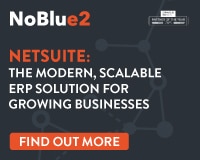 This argument from Sapphire…
This argument from Sapphire…
We understand that the claim that cloud ERP helps businesses grow may sound vague, and we don’t like to shy away from placing a magnifying glass on what we recommend. With this in mind, we’re here to talk specifics. We have identified three key ways in which cloud ERP provides small and midsize businesses the opportunity to grow sustainably and in an accelerated fashion.
1) Business growth without physical boundaries
One of the biggest hurdles businesses looking to grow must overcome are geographical boundaries. Oftentimes, there’s an opportunity for business expansion that is not within the physical confines of the city or country where operations started originally. However, going into unchartered territories is not as simple as just acquiring a customer and running a transaction. Operating abroad comes with a lot of items to oversee, including but not limited to:
Currency exchange (and constant currency rates)
International business laws and regulations
Local compliance rules for companies
Taxes, duties, and levies
Language barriers
Customs revisions and delays (if the company sells a product).
[irp]
This is to name just a few. All of the above can create serious issues that can prevent a company from achieving its desired growth goals, but the good news is there is an existing and attainable solution for it. With the right Enterprise Resource Planning (ERP) solution, you can have a system in place that automates all of these procedures, estimates time requirements in advance, and has customisable presets that can take care of the international overlays that need attention. With these issues sorted, your company can venture into multiple countries simultaneously and propel itself into the growth it’s ready to undertake in all other areas.
2) Productivity gains from cloud ERP
In a global productivity study it was stated that on average, workers across countries feel that they spend roughly a third of the work year doing administrative tasks or tedious work, work that takes away from them investing it in worthwhile activities where their skillset could be of use. That translates to 15 weeks, or 552 hours, per person every year. This is a loss of $5 trillion USD annually (in the service industry alone) in pay for that “wasted” time.
Imagine what it would be like if all of your workforce – which according to this study is roughly only 60% productive – suddenly got their admin work sorted and could invest that time back into making impactful strides in their primary responsibilities? How much further (and quicker) would your company be able to grow? Technology is here to help humans accomplish more in less time and with less resistance. Inputting data is time consuming and has a lot of potential for human error, whereas a machine can take care of it under the right workflow with much higher accuracy rates.
[irp]
Employee morale is one of the often unmentioned sides to process automation. When your employees feel like they’re wasting away at work and that their potential is not being explored due to so much of their time going to admin work, they lose motivation and it starts to show in their work. It’s hard to quantify morale and its impact, but as a manager, you know what your people can produce when their environment propels them versus the alternative.
What changes would an ERP solution bring that integrates every business department in one place, has employee automation workflows, and can be accessed from any device, anytime, anywhere in the world? The efficiency and productivity that good ERP with a cloud component can achieve are off the charts. If you’re worried about resistance from the workforce, the same study claims that two-thirds or more of the employees surveyed admit technology would improve their productivity levels, and 80% already trust its accuracy.
3) No second-guessing with intelligent insights
One of the daunting parts of being an executive or manager in charge of a growing company is the decision making time. When you have to pick between strategic paths, where to invest your time and resources, and how long to test these runs for can be a major challenge. Many go into it blindly and based on pure intuition, making their journey a lot longer, more difficult, and frankly, more expensive than what it needs to be. Cloud ERP is the solution that businesspeople wish they could’ve had years ago when they had to take these leaps of faith with so much uncertainty.
With the ability to access real-time data as it happens, leadership teams are able to stay away from costly mistakes, try different tactics for a limited run while gauging the exact results, and they’re able to speak confidently with stakeholders or investors if they request company information at any point. All of which is crucial to steer the company in the right direction for growth. The right ERP solution can be the clear differentiator between success and failure, and it’s a clear sign of whether a company has the ability to function like an intelligent enterprise.
Summary: Impossible to ignore the potential…
Intelligent ERP on the cloud sounds like a fancy combination of buzzwords but having evaluated the impact of it in these tangible, everyday scenarios, it’s impossible to ignore the potential of what this could do for a growing company. Taking your business to the next level doesn’t have to be limited by geographies, stunted by lack of productivity, or damaged by going in the wrong direction when you can have all of the figures you need in the palm of your hand (literally, on your smart device). If you’ve been ready to take your company to new heights but have been dissuaded by the possible challenges that growth can bring when unprepared, you don’t need to delay your growth any longer. Get in touch with our team and we can help your business grow into the intelligent enterprise it’s meant to become.






